
Find Help
More Items From Ergsy search
-

What are the main symptoms of ADHD?
Relevance: 100%
-

Can diet affect ADHD symptoms?
Relevance: 97%
-

Is there a cure for ADHD?
Relevance: 86%
-
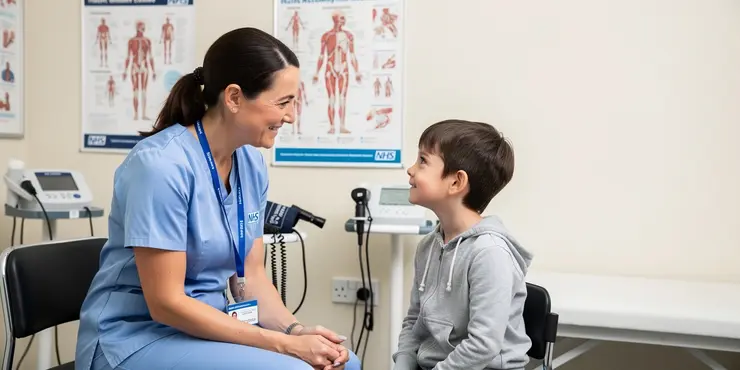
What is ADHD?
Relevance: 85%
-
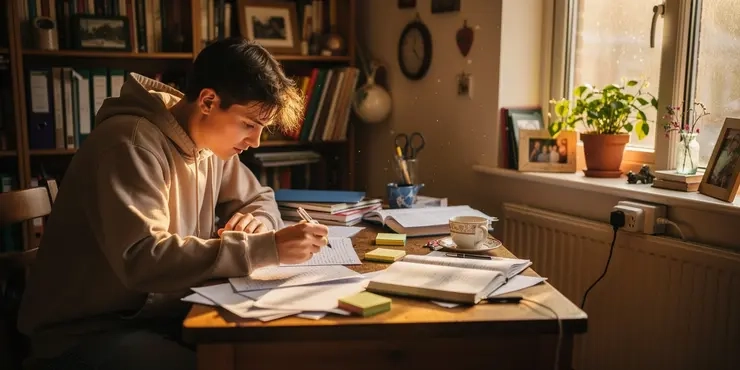
Attention deficit hyperactivity disorder (ADHD) - Living with ADHD
Relevance: 84%
-

Can ADHD be inherited?
Relevance: 82%
-
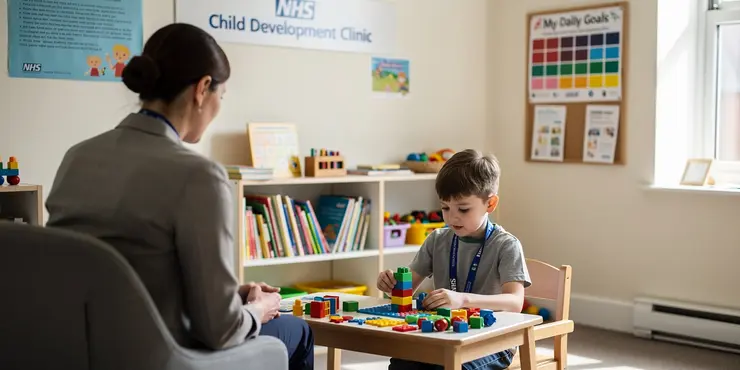
How is ADHD diagnosed?
Relevance: 80%
-

What causes ADHD?
Relevance: 79%
-
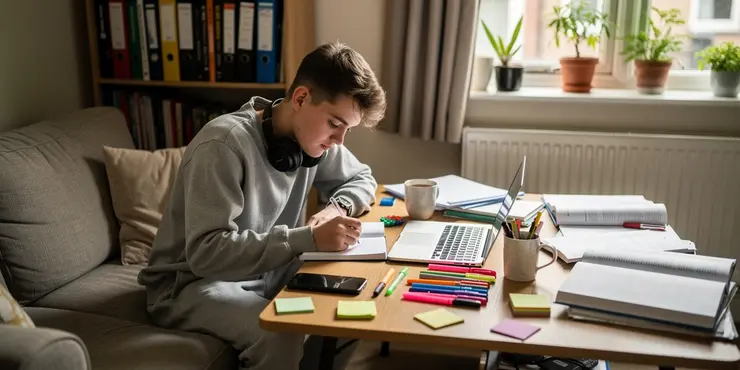
Are there different types of ADHD?
Relevance: 79%
-

Can adults have ADHD?
Relevance: 78%
-
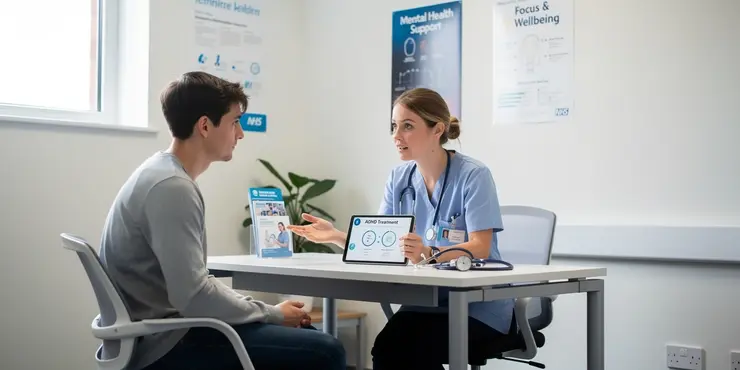
What are common treatments for ADHD?
Relevance: 77%
-

Is ADHD more common in boys or girls?
Relevance: 76%
-
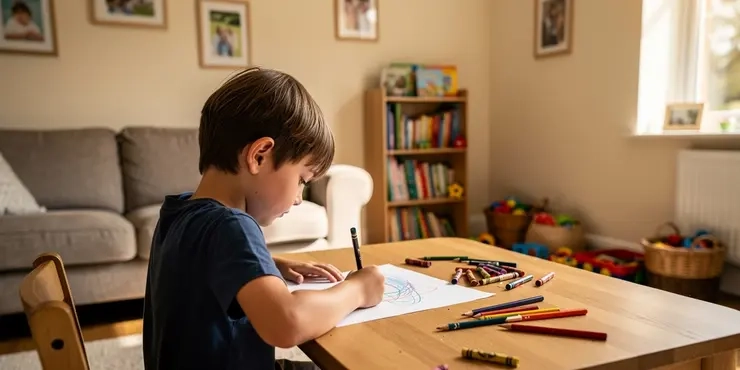
Attention deficit hyperactivity disorder (ADHD) - Introduction
Relevance: 75%
-
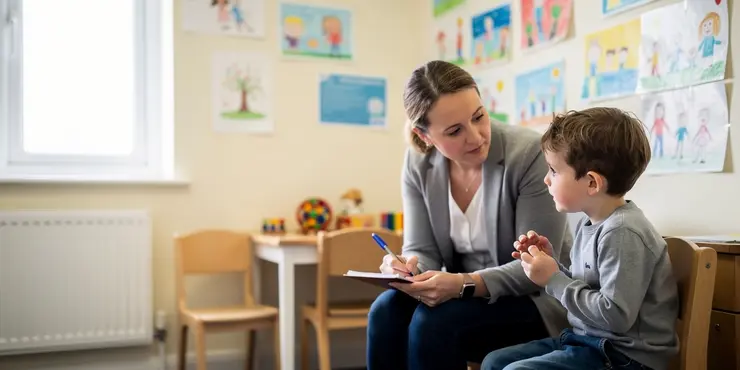
What role does the environment play in ADHD?
Relevance: 75%
-
How can I get tested for ADHD?
Relevance: 75%
-
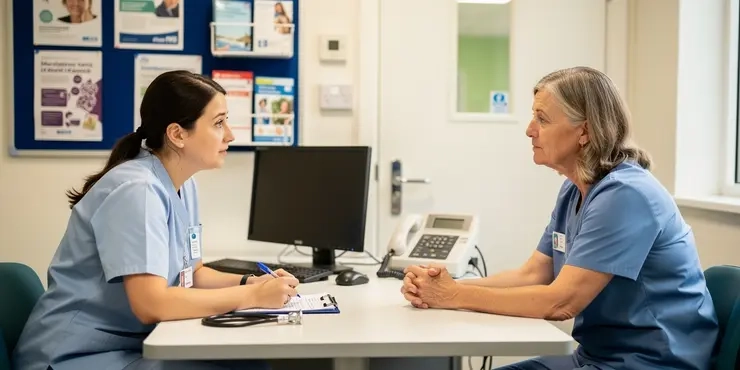
Attention deficit hyperactivity disorder (ADHD) - Diagnosis
Relevance: 75%
-

Can lifestyle changes help manage ADHD?
Relevance: 74%
-
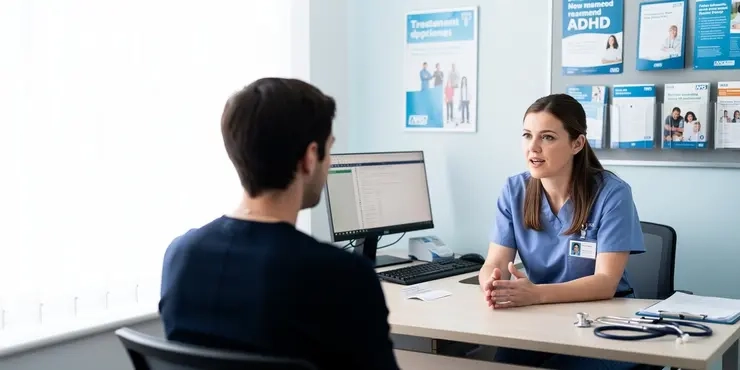
Attention deficit hyperactivity disorder (ADHD) - Treatment
Relevance: 74%
-

Can therapy help individuals with ADHD?
Relevance: 73%
-
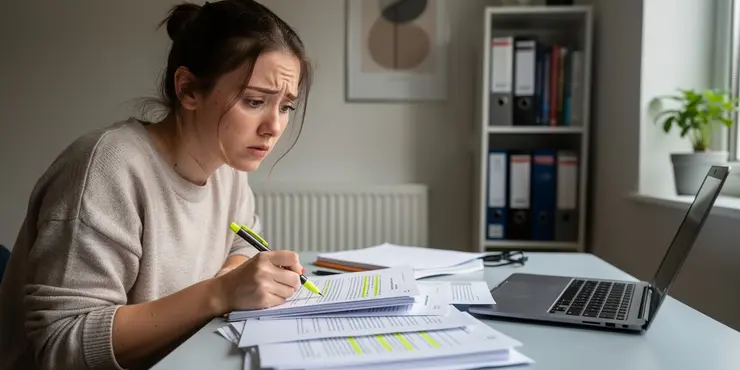
Are there any risks associated with untreated ADHD?
Relevance: 72%
-
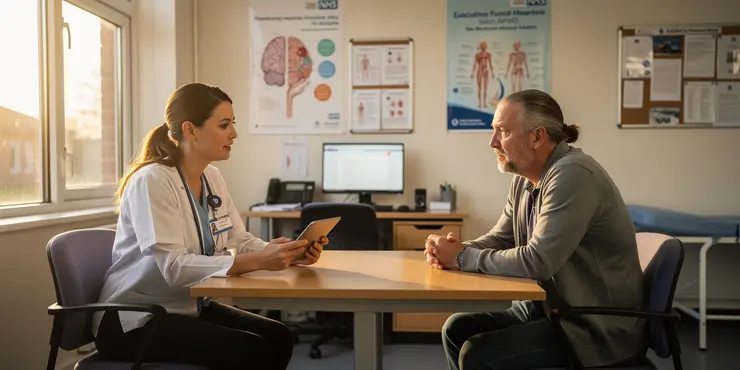
How does ADHD affect executive function?
Relevance: 68%
-
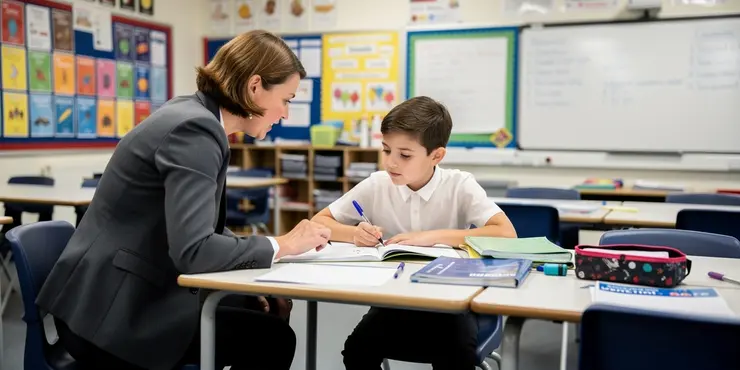
How can teachers support students with ADHD?
Relevance: 66%
-

What is ADHD?
Relevance: 61%
-
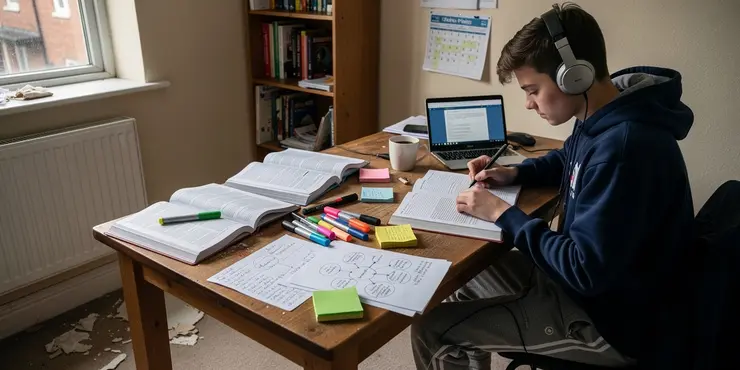
Can ADHD affect academic performance?
Relevance: 52%
-

Dyspraxia Symptoms & Signs
Relevance: 42%
-

Dyspraxia Symptoms & Signs
Relevance: 36%
-

The symptoms of gonorrhoea
Relevance: 35%
-

What are the symptoms of norovirus?
Relevance: 33%
-
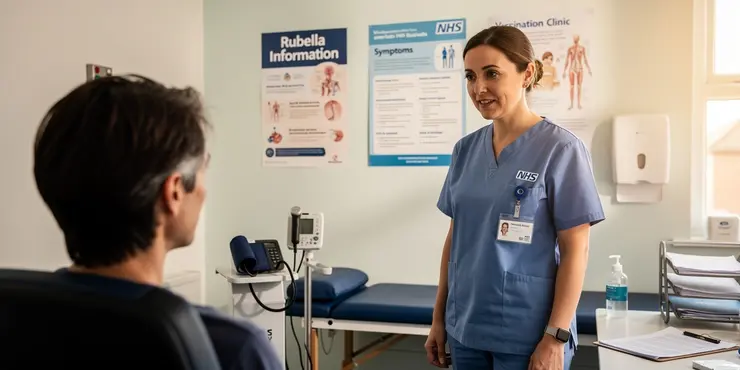
What are the symptoms of Rubella?
Relevance: 33%
-

Are there symptoms of an HPV infection?
Relevance: 33%
-

Symptoms of coeliac disease
Relevance: 33%
-

What are the symptoms of measles?
Relevance: 33%
-
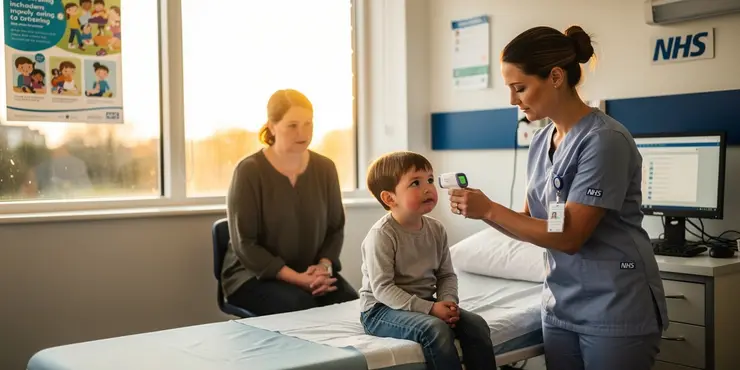
What are the symptoms of measles?
Relevance: 33%
-
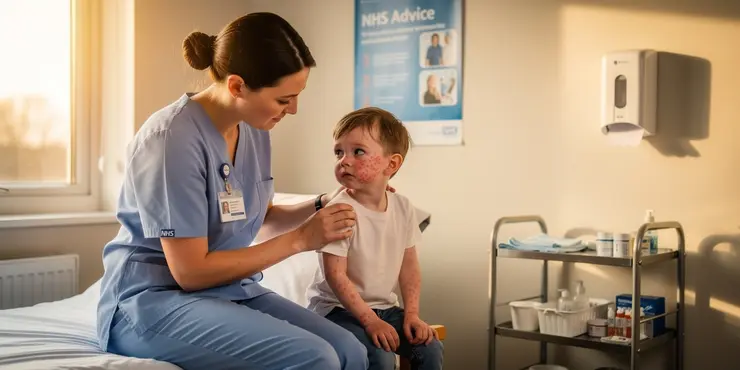
What are the symptoms of measles?
Relevance: 33%
-

What are the symptoms of SAD?
Relevance: 33%
-
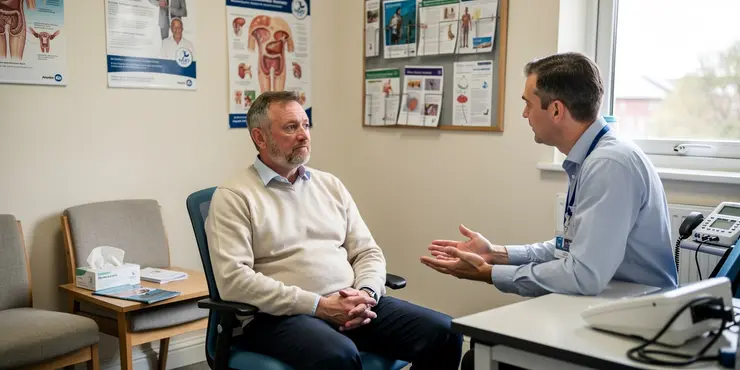
What are the symptoms of BPH?
Relevance: 33%
-

What are the symptoms of chickenpox?
Relevance: 33%
-
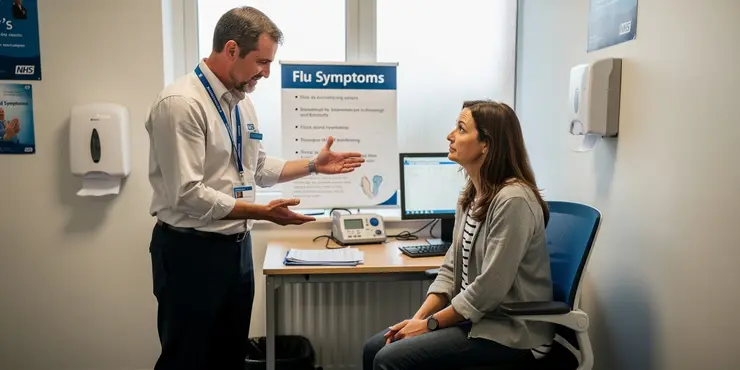
What are the symptoms of flu ?
Relevance: 33%
-
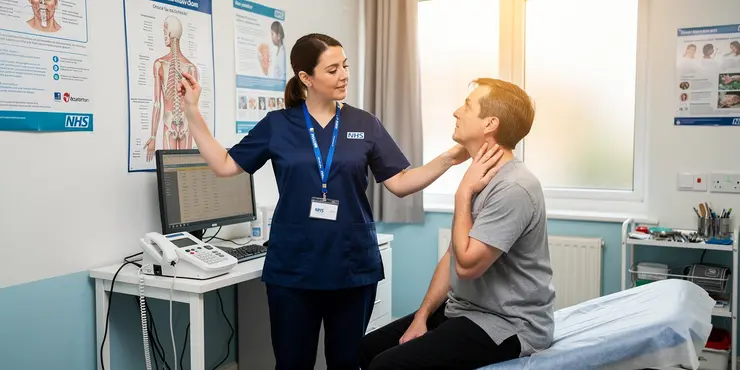
What are the symptoms of whiplash?
Relevance: 33%
-

What are the symptoms of hypotony?
Relevance: 33%
What are the Main Symptoms of ADHD?
Attention Deficit Hyperactivity Disorder (ADHD) is a neurodevelopmental disorder that typically manifests in childhood but can persist into adulthood. It is characterized by a range of symptoms that can broadly be divided into two categories: inattention and hyperactivity-impulsivity. However, not everyone with ADHD will exhibit all symptoms, and the severity can vary from person to person.
Inattention
Inattention is often one of the more noticeable symptoms of ADHD, particularly in environments that demand sustained focus and concentration, such as schools or workplaces. Some common signs include:
1. Difficulty sustaining attention: Individuals with ADHD may find it hard to focus on tasks or engage in activities that require prolonged mental effort. They might frequently switch from one activity to another without completing any.
2. Careless mistakes: Often, those with ADHD overlook details, leading to careless errors in work or school assignments.
3. Seeming not to listen: Individuals may appear to be daydreaming or not paying attention when spoken to, even when there is no obvious distraction.
4. Poor organizational skills: People with ADHD may struggle with organizing tasks and activities, often resulting in a chaotic approach to work or home responsibilities.
5. Avoiding tasks: Tasks that require sustained mental effort, such as completing paperwork or homework, are often avoided due to the difficulty in maintaining focus.
Hyperactivity and Impulsivity
Hyperactivity-impulsivity is the other core symptom category of ADHD. This can manifest in various ways, including:
1. Fidgeting and squirming: Individuals may have difficulty staying seated, often fidgeting or squirming while in their seats.
2. Inappropriate running or climbing: In children, this might show up as an inability to stay calm in environments where it is expected, like the classroom.
3. Difficulty playing quietly: Many with ADHD struggle to engage in activities quietly, opting for noisy and more active games.
4. Excessive talking: A person with ADHD might talk excessively, having a hard time not interrupting conversations or letting others speak.
5. Impulsivity: Individuals often act without thinking, which can result in interrupting others, speaking out of turn, or having difficulty waiting for their turn in games or group situations.
Conclusion
Recognising the symptoms of ADHD is the first step toward seeking appropriate help and management. If symptoms of inattention, hyperactivity, and impulsivity are affecting your daily life, or that of someone you know, it may be beneficial to seek advice from a healthcare professional. Early intervention can lead to more effective management strategies, improving the quality of life for individuals with ADHD.
What are the Main Symptoms of ADHD?
Attention Deficit Hyperactivity Disorder, called ADHD, is a brain condition. It usually starts when someone is a child and can continue when they grow up. ADHD has different signs and can affect people in different ways. The signs can be split into two groups: problems paying attention, and being very active and impulsive. Not everyone has all the signs and they can be different in how strong they are.
Inattention
Having trouble paying attention is a big sign of ADHD. This is especially clear in places like schools where you need to focus. Here are some common signs:
1. Hard time focusing: People with ADHD might find it hard to pay attention to tasks. They may jump from one thing to another without finishing.
2. Careless mistakes: They might miss details, so they make mistakes in work or homework.
3. Not listening: It might look like they are daydreaming and not paying attention, even if no big distractions are around.
4. Trouble staying organized: They find it hard to organize things they need to do, making their tasks messy.
5. Avoiding hard tasks: They might avoid doing things that need a lot of focus, like homework, because it's difficult to stay focused.
Hyperactivity and Impulsivity
Being very active and impulsive is another big part of ADHD. Here are some ways it shows:
1. Moving around a lot: They may have a hard time sitting still and often fidget.
2. Running or climbing: Kids may run or climb when they shouldn't, like in class.
3. Not playing quietly: They may find it hard to play quiet games and prefer loud activities.
4. Talking a lot: They might talk too much and interrupt others, finding it hard to wait for their turn to speak.
5. Acting without thinking: They might do things without thinking first, like interrupting or not waiting for their turn.
Conclusion
Noticing the signs of ADHD is important for getting the right help. If these signs make life hard for you or someone you know, talking to a doctor can help. Getting help early can make managing ADHD easier and make life better for those with ADHD.
Frequently Asked Questions
What are the primary symptoms of ADHD?
The primary symptoms of ADHD include inattention, hyperactivity, and impulsivity.
How does inattention manifest in individuals with ADHD?
Inattention can manifest as difficulty sustaining focus, not listening when spoken to, distractibility, and frequent mistakes.
What are common signs of hyperactivity in ADHD?
Common signs include fidgeting, an inability to stay seated, excessive talking, and constantly being in motion.
What does impulsivity look like in ADHD?
Impulsivity can appear as difficulty waiting one's turn, interrupting others, and acting without thinking.
Can ADHD symptoms vary between children and adults?
Yes, while core symptoms remain, adults may show less hyperactivity but continue to struggle with inattention and impulsivity.
Is forgetfulness a symptom of ADHD?
Yes, forgetfulness is a common symptom, often leading to missed appointments or forgotten responsibilities.
Can ADHD symptoms be mistaken for other conditions?
Yes, symptoms can overlap with anxiety, depression, and learning disabilities, making diagnosis challenging.
Do ADHD symptoms change over time?
They can change; hyperactivity might decrease with age, while inattention and impulsivity might persist.
How does ADHD affect academic performance?
ADHD can lead to difficulties focusing, following instructions, completing tasks, and organizing work, affecting academic performance.
Can ADHD symptoms lead to social challenges?
Yes, impulsivity and inattention can make it challenging to form or maintain social interactions and relationships.
How does ADHD affect daily life activities?
Routine tasks can become challenging due to inattention, leading to disorganization and incomplete activities.
Are emotional symptoms part of ADHD?
Emotional dysregulation, such as irritability or low frustration tolerance, can be associated with ADHD.
Is ADHD only seen in children?
No, ADHD can be lifelong and many adults also experience symptoms that affect their work and relationships.
Can ADHD symptoms be managed with lifestyle changes?
Yes, structured routines, physical activity, and behavioral therapy can help manage symptoms.
What role does inattentiveness play in ADHD?
Inattentiveness can lead to difficulties concentrating, following conversations, and staying organized.
Are there any positive traits associated with ADHD symptoms?
Some individuals may exhibit creativity, enthusiasm, and ability to hyperfocus on certain tasks or interests.
Can sleep issues be related to ADHD symptoms?
Yes, individuals with ADHD often experience sleep disturbances, which can exacerbate symptoms.
What are the risk factors for developing ADHD symptoms?
Genetics, prenatal exposures, and environmental factors like lead exposure can increase risk.
Is poor time management a symptom of ADHD?
Yes, individuals with ADHD often struggle with time management and meeting deadlines.
Are there variations in ADHD symptoms among genders?
Yes, males often exhibit more hyperactivity, while females may display more inattentiveness and emotional symptoms.
What are the main signs of ADHD?
ADHD is a condition that makes it hard to sit still and focus. Here are the main signs:
- Can't sit still: Some people find it hard to sit quietly.
- Cannot focus: It's hard for them to pay attention, especially for a long time.
- Acting without thinking: They might do things quickly without thinking first.
For help, you can:
- Use pictures to show what needs to be done.
- Take breaks often to move around.
- Use a timer to help focus for short times.
The main signs of ADHD are:
- Not paying attention
- Being very active
- Doing things without thinking first
It can help to use tools like reminder notes or timers to stay focused. Also, having a schedule can be good too.
How does not paying attention show up in people with ADHD?
Sometimes, people find it hard to pay attention. They might not listen when someone is talking to them. They can get distracted easily. They might make mistakes often.
What are common signs of hyperactivity in ADHD?
Kids with ADHD might have lots of energy. They might:
- Move around a lot
- Fidget with things
- Talk a lot
- Have trouble sitting still
- Be very noisy
- Find it hard to wait for their turn
If you're helping someone who finds reading tricky:
- Read out loud together.
- Use a pointing stick or finger to follow the words.
- Take breaks often.
Here are some common signs:
- Moving around a lot
- Can't sit still
- Talking a lot
- Always on the move
It can help to take breaks, use fidget toys, or try to focus on one thing at a time.
What is impulsivity in ADHD?
If you have ADHD, you might do things without thinking. This is called impulsivity.
Here are some examples of impulsivity:
- Interrupting others when they talk.
- Finding it hard to wait for your turn.
- Making quick decisions without thinking.
Helpful tools and tips:
- Use a timer to practice waiting.
- Write down thoughts before speaking.
- Take deep breaths to help slow down.
Impulsivity means finding it hard to wait, interrupting others, and doing things without thinking first.
Do ADHD signs look different in kids and grown-ups?
Yes, even when adults with ADHD are not as hyper, they can still have trouble paying attention and acting without thinking.
Does forgetting things mean you have ADHD?
Sometimes, people with ADHD forget things easily. ADHD is a condition that can make it hard to pay attention and stay focused. If you often forget things, it might be a sign of ADHD. But not everyone who forgets has ADHD. If you are worried, talk to a doctor or a teacher who can help. Using lists or reminders can also help with memory.
Yes, people often forget things. This can mean missing appointments or not remembering to do important tasks.
Can ADHD signs look like other health problems?
Sometimes, ADHD signs can be confused with signs of other health problems. This means people might think it is something else.
People can feel very active, forget things, or have trouble sitting still. These can happen in other conditions too, not just ADHD.
To help understand better, talk to a doctor. They know how to check and find out what the problem really is.
Using a notebook or drawing pictures can help you explain how you feel. It can make talking with the doctor easier.
Yes, sometimes things like anxiety, feeling sad, and having trouble learning can look the same. This can make it hard for doctors to know what the problem is.
Do ADHD symptoms change as you grow up?
Yes, ADHD symptoms can change as you grow. Here is what can happen:
- When you are young, you might find it hard to sit still or pay attention.
- As you get older, you might feel less hyper, but still find it hard to focus.
Everyone is different. Some people might notice only a few changes, while others might see big changes.
If you find it hard to manage ADHD, here are some things that might help:
- Make a list of things you need to do.
- Use a calendar to keep track of important dates.
- Ask an adult or friend for help when you need it.
Things can change. Moving around a lot might become less as you get older. But finding it hard to focus or acting without thinking might stay the same.
How does ADHD affect school work?
ADHD can make it hard to do well in school. Kids with ADHD might:
- Have trouble paying attention
- Find it hard to sit still
- Forget things easily
- Make mistakes because they rush things
These challenges can make school work difficult, but there are ways to help.
Tips to Help
- Use a planner to remember tasks
- Take short breaks to stay focused
- Ask teachers for extra help if needed
- Use tools like timers to manage time
With support, kids with ADHD can do well in school.
People with ADHD can find it hard to pay attention. They might have trouble listening to instructions, finishing their work, and keeping things organized. This can make schoolwork difficult.
Can ADHD make making friends hard?
Yes, acting without thinking and not paying attention can make it hard to make and keep friends.
How does ADHD affect daily life?
Everyday tasks can be hard when you have trouble paying attention. This can make things messy and jobs aren't finished.
Does ADHD cause feelings that are hard to handle?
ADHD can make it hard for people to control their emotions. This means they might feel strong feelings like anger or sadness.
If you think this might be case for you, talking to a doctor or a helper can be good. They can give you tips on how to handle feelings better.
People with ADHD might feel strong emotions. They can get annoyed easily or feel upset when things go wrong. This is called emotional dysregulation.
Can adults have ADHD too?
ADHD can also be in adults, not just kids.
Some tools can help people with ADHD:
- Using a planner to keep track of tasks
- Setting reminders on a phone or computer
- Breaking big jobs into smaller steps
No, ADHD can last your whole life. Many grown-ups also have ADHD. It can make work and friendships hard for them.
Can you help ADHD with changes in daily life?
ADHD means Attention Deficit Hyperactivity Disorder. It can make it hard to pay attention and stay still. But, there are ways to help make it better.
You can try:
- Having a clear daily routine.
- Doing regular exercise.
- Eating healthy food.
- Getting enough sleep.
- Using reminders and to-do lists.
You can also use tools like:
- Alarms for reminders.
- Apps to help you stay focused.
- Talking to a therapist for help.
These can make things easier and help manage ADHD.
Yes, having a daily plan, doing exercise, and getting special help can make things better.
How does not paying attention affect ADHD?
Not paying attention can make it hard to focus, listen well, and keep things in order.
Do people with ADHD have good things about them?
People with ADHD can have some special strengths. Here are some good things they might have:
- They are often very creative and good at thinking of new ideas.
- They can have lots of energy and enthusiasm.
- They are sometimes very good at focusing on things they find interesting.
- They can be very caring and have a big heart.
To help people with ADHD, we can use tools that remind them what to do, like timers or checklists. It can also be helpful to take short breaks and have a quiet space to work.
Some people can be really creative and excited about things. They can also focus really hard on certain tasks or things they like.
Can problems with sleep be linked to ADHD?
Some kids and adults with ADHD might have trouble sleeping. This means they could find it hard to fall asleep or stay asleep. When this happens, it can make ADHD symptoms feel worse.
If you have sleep problems, here are some things that might help:
- Go to bed at the same time every night.
- Make your bedroom quiet and dark.
- Stop using screens, like tablets or phones, before bed.
- Try relaxing activities like reading a book or listening to calming music.
If you still have trouble, it's okay to ask a doctor for help. They can give you more tips or treatments that might work for you.
Yes, people with ADHD often have trouble sleeping, which can make their symptoms worse.
What can make ADHD more likely?
ADHD is when it’s hard to pay attention and stay still. Some things can make it more likely that someone gets ADHD:
- If someone in your family has ADHD, you might get it too.
- Being around smoke or lead when a baby can be risky.
- Saying and doing things without thinking can also point to ADHD.
If you think you might have ADHD, talking to a doctor can help. There are also games and apps made to help with focus. Practice focusing on tasks for short times and take breaks.
Genes, things around a baby before birth, and stuff like breathing in lead can make risk go up.
Using pictures, watching videos, or asking someone to explain can help understand more.
Is bad time management a sign of ADHD?
If you find it hard to organize your time, it might be because of ADHD. ADHD can make it difficult to plan and keep track of time.
To help with time management, you can use:
- Timers or alarms to remind you of tasks
- Simple schedules that show what to do and when
- Checklists to keep track of completed tasks
Getting help from a teacher or friend can also be useful.
Yes, people with ADHD can find it hard to manage their time and finish things on time.
Do boys and girls show ADHD signs differently?
ADHD can look different in boys and girls. This means that boys and girls may have different symptoms or signs.
Some helpful ways to understand ADHD better are:
- Use pictures to explain ideas.
- Read short and simple books about ADHD.
- Watch videos that talk about ADHD.
- Ask a parent or teacher if you have questions.
Boys often show more energy and can be very active. Girls might find it hard to pay attention and can be more emotional.
Useful Links
This website offers general information and is not a substitute for professional advice.
Always seek guidance from qualified professionals.
If you have any medical concerns or need urgent help, contact a healthcare professional or emergency services immediately.
Some of this content was generated with AI assistance. We’ve done our best to keep it accurate, helpful, and human-friendly.
- Ergsy carfully checks the information in the videos we provide here.
- Videos shown by Youtube after a video has completed, have NOT been reviewed by ERGSY.
- To view, click the arrow in centre of video.
- Most of the videos you find here will have subtitles and/or closed captions available.
- You may need to turn these on, and choose your preferred language.
- Go to the video you'd like to watch.
- If closed captions (CC) are available, settings will be visible on the bottom right of the video player.
- To turn on Captions, click settings .
- To turn off Captions, click settings again.
More Items From Ergsy search
-

What are the main symptoms of ADHD?
Relevance: 100%
-

Can diet affect ADHD symptoms?
Relevance: 97%
-

Is there a cure for ADHD?
Relevance: 86%
-

What is ADHD?
Relevance: 85%
-

Attention deficit hyperactivity disorder (ADHD) - Living with ADHD
Relevance: 84%
-

Can ADHD be inherited?
Relevance: 82%
-

How is ADHD diagnosed?
Relevance: 80%
-

What causes ADHD?
Relevance: 79%
-

Are there different types of ADHD?
Relevance: 79%
-

Can adults have ADHD?
Relevance: 78%
-

What are common treatments for ADHD?
Relevance: 77%
-

Is ADHD more common in boys or girls?
Relevance: 76%
-

Attention deficit hyperactivity disorder (ADHD) - Introduction
Relevance: 75%
-

What role does the environment play in ADHD?
Relevance: 75%
-
How can I get tested for ADHD?
Relevance: 75%
-

Attention deficit hyperactivity disorder (ADHD) - Diagnosis
Relevance: 75%
-

Can lifestyle changes help manage ADHD?
Relevance: 74%
-

Attention deficit hyperactivity disorder (ADHD) - Treatment
Relevance: 74%
-

Can therapy help individuals with ADHD?
Relevance: 73%
-

Are there any risks associated with untreated ADHD?
Relevance: 72%
-

How does ADHD affect executive function?
Relevance: 68%
-

How can teachers support students with ADHD?
Relevance: 66%
-

What is ADHD?
Relevance: 61%
-

Can ADHD affect academic performance?
Relevance: 52%
-

Dyspraxia Symptoms & Signs
Relevance: 42%
-

Dyspraxia Symptoms & Signs
Relevance: 36%
-

The symptoms of gonorrhoea
Relevance: 35%
-

What are the symptoms of norovirus?
Relevance: 33%
-

What are the symptoms of Rubella?
Relevance: 33%
-

Are there symptoms of an HPV infection?
Relevance: 33%
-

Symptoms of coeliac disease
Relevance: 33%
-

What are the symptoms of measles?
Relevance: 33%
-

What are the symptoms of measles?
Relevance: 33%
-

What are the symptoms of measles?
Relevance: 33%
-

What are the symptoms of SAD?
Relevance: 33%
-

What are the symptoms of BPH?
Relevance: 33%
-

What are the symptoms of chickenpox?
Relevance: 33%
-

What are the symptoms of flu ?
Relevance: 33%
-

What are the symptoms of whiplash?
Relevance: 33%
-

What are the symptoms of hypotony?
Relevance: 33%


